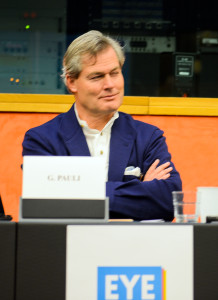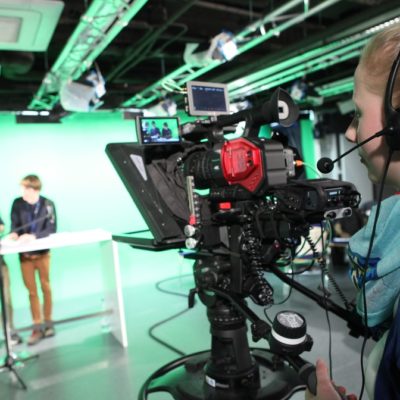By Giulia Dessi, Italy
Entrepreneur, writer and lecturer, Gunter Pauli is father of six children and 12 companies. He is the founder of the Blue Economy, “a competitive business model that allows producers to offer the best at the lowest prices by introducing innovations that generate multiple benefits, not just increased profits.”
How did you come up with the idea of the Blue Economy?
Sky is blue, the Earth is blue, and the oceans are blue. So why do you want to call it green when it is blue? The Blue Economy is better than the Green one. How could we have an economy where we’re happy to have green things when everything that is green is also more expensive? If it’s healthy for you it is also more expensive, but this doesn’t make any sense if it is only for the rich.
When did you come up with this idea?
Time ago, I started a company called Ecover. We made soap and detergent from palm oil, but I did it in a beautiful wooden factory. I thought I was the hero of the world because I was bringing biodegradable soaps in a green factory and I was beating P&G and Unilever on the market, until I realised I was destroying the rainforest. I didn’t know. So, twenty years ago, I said “my business model is wrong because I have biodegradable and renewable products, but this is not sustainable.” I was destroying the habitat of the orangutans.
What did you do when you realised that?
I was in a partnership, and I motivated my partners to change. But they didn’t want to because they were making good money. So I left the company to them and I created my own new activities. Ecover still exists, but it is not an ecological company, even though it produces under an ecological label.
Not many people are aware of this.
No, that’s why I have to tell people “hey, I’m the one who did it and I said ‘oh my god, I’m wrong!’”
What is the size of the Blue Economy now?
Over the last 20 years we have invested about 4 billion euros. It’s not peanuts anymore. That’s a relatively sizeable amount. We have 188 projects implemented. We make paper from stone. In Italy we use thistle to make lubricants, and to produce enzyme for cheese. And we use it also for food for animals, and elastomers. These are very new ideas, but we’re putting them into practice. The result is that we can have cheaper bio plastics than ever before, because we gets six products and therefore six revenues out of thistle. And we can generate jobs.
If it is as simple and good as you say, why hasn’t everybody already converted to the blue economy concept?
Because it takes years to develop it. People are used to apps. This is not an app store. In the app, you snap your fingers and then you have it. You cannot expect to have a new industrial system overnight. You need a generation to shift around. One of the biggest problems is that people are so used to the easy economy of the internet that they don’t realise that at the end of the day you have to produce everything. If you’re not going to manufacture it yourself, someone else has to manufacture it.
What would you recommend to a young entrepreneur with a good idea?
Talk to another entrepreneur who has another idea, because alone you’ll never make it. You only make it when you have groups of innovative people together. We need a lot of young people who see the opportunities to generate jobs, new products, new economy, to connect agriculture with manufactory, to generate value. That’s really what we are for.
What can the EU do to facilitate the blue economy?
The EU has to give us the freedom to do it. Today, everything that is permitted in the EU is regulated. We have to get rid of all the regulations. We have hundred billions plastic bags that have been discarded in the world and every country has its own regulations. They should just say “no, you can’t use them anymore,” and let everyone organize themselves. The EU has been too involved in trying to determine what light bulbs we cannot use it, what plastic bags we cannot use it. We have to create a bit of a freedom to be innovative.
Wouldn’t you need a lot of subsidies to make these innovative companies work?
We have 188 projects and zero subsidies. Not one. We don’t accept money from the government, because if you do, then you depend on the politicians, and they always change.













